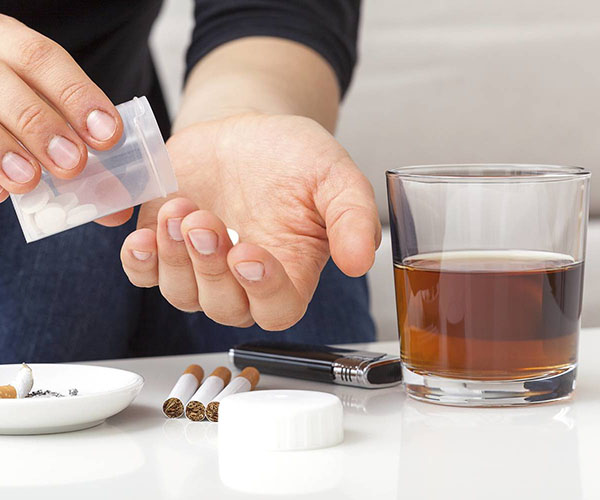

Substance abuse is an addictive disorder that describes a pattern of substance (usually drug or alcohol) use leading to significant problems or distress, such as failure to attend school or work, substance use in dangerous situations (eg, driving a car), substance-related legal problems or continued substance use that interferes with friendships and/or family relationships. Substance abuse, as a disorder, refers to the abuse of illegal substances or the abusive use of legal substances. Alcohol is the most common legal drug to be abused.
Substance dependence is an addictive disorder that describes continued use of drugs or alcohol, even when significant problems related to their use have developed. Signs include an increased tolerance — that is, the need for increased amounts of the substance to attain the desired effect; withdrawal symptoms with decreased use; unsuccessful efforts to decrease use; increased time spent in activities to obtain the substance; withdrawal from social and recreational activities; and continued use of the substance even with awareness of the physical or psychological problems encountered by the extent of substance use.
Chemical dependence is also an addictive disorder that describes the compulsive use of chemicals (usually drugs or alcohol) and the inability to stop using them despite all the problems caused by their use.
The substances frequently abused include, but are not limited to, the following:
Alcohol, Marijuana, Hallucinogens, Cocaine, Amphetamines, Opiates, Anabolic steroids, Inhalants, Methamphetamine, Tobacco.
People with addictive disorders may experience symptoms differently. Some typical symptoms of addictive disorders may include:
Getting high on drugs or getting intoxicated (drunk) on a regular basis
Lying, especially about how much they are using or drinking
Avoiding friends and family members
Giving up activities they used to enjoy, such as sports or spending time with non-using friends
Talking a lot about using drugs or alcohol
Believing they need to use or drink in order to have fun
Pressuring others to use or drink
Getting in trouble with the law
Taking risks, such as sexual risks or driving under the influence of a substance
Suspension/expulsion from school or being fired from work for a substance-related incident
Missing school or work due to substance use
Depressed, hopeless or suicidal feelings

Addictive disorders are caused by multiple factors, including genetic vulnerability, environmental stressors, social pressures, individual personality characteristics and psychiatric problems.
From a neurological standpoint, addictive disorders arise when a substance changes the way the user’s brain feels pleasure. Addictive substances alter the brain’s ability to send and receive chemicals called neurotransmitters, which cause pleasure. The addictive substances can prevent nerves in the brain called neurons from receiving these pleasure chemicals, meaning the drug user relies on the drug, rather than his or her natural brain chemicals, for feelings of pleasure.
If you or a loved one struggle with substance abuse, give Dr. Kerry Armstrong a call to discuss your fears and dependencies. With her knowledge, insight and experience, she will help you navigate the path to sobriety and lead a happier, healthier life.